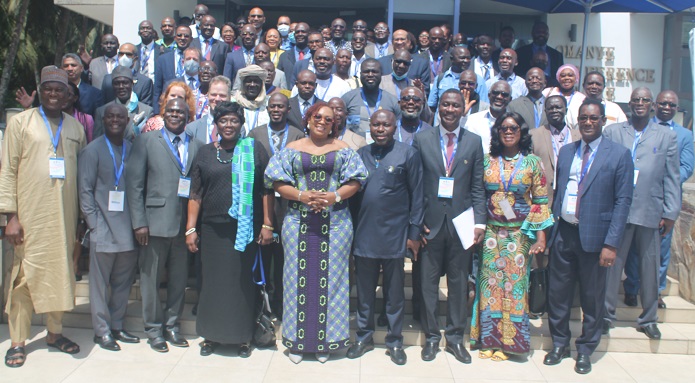
The seventh meeting of the Organisation of African, Caribbean and Pacific States (OACPS) Ministers in charge of Fisheries and Aquaculture is underway in Accra.
The four-day event was opened yesterday with the commencement of a technical session for senior officials in the fisheries and aquaculture sector.
It is being held on the theme “OACPS Blue Economy Agenda 2030 – Catalysing the Sustainable Fisheries and Aquaculture Development for the Future.”
Opening the session, Minister of Fisheries and Aquaculture, Mavis Hawa Koomson, explained that the meeting offered the platform to discuss pertinent issues confronting the sector at the global, regional and national levels.
Just as other member states, she said Ghana’s fisheries and aquaculture sector played a critical role in its economic transformation by contributing significantly to Gross Domestic Product (GDP), job and wealth creation, poverty reduction as well as food and nutrition security.
The minister noted that an estimated 3,000,000 of the country’s population were directly and indirectly employed within the fisheries and aquaculture value chain.
The sector, she said, also supports the government’s efforts to achieve food and nutrition security with fish constituting 60 per cent of the animal protein intake of Ghanaians.
However, Mrs Koomson explained that fish production around the world had been declining, with many countries especially, developing countries experiencing over-capacity and declining profits.
She stated that many fisheries resources were overexploited due mainly to illegal, unreported, unregulated (IUU) fishing, adding that IUU fishing was a threat to sustainable fisheries and affect efforts to rebuild depleting fish stocks.
Ghana, she said, as part of measures to address the challenges confronting the fisheries and aquaculture sector, implementing Fishing Closed Seasons for all fleets including artisanal canoes as a marine stock recovery strategy to help rebuild depleting marine fish stocks.
Mrs Koomson added that the country had reviewed the existing National Fisheries and Aquaculture Policy developed in 2008 to reflect emerging trends in the sector and adequately address the challenges confronting the sector.
She noted Ghana had also commenced activities towards the enactment of a new Fisheries Act to replace the existing Fisheries Act, 2002 (Act 625) that would ensure that emerging issues and decisions of international fisheries organisations were incorporated into fisheries legislation.
She said the government was in the process of acquiring a research vessel for regular research on physical, chemical and biological characteristics of the marine waters and four patrol boats to enhance enforcement capacity to address the issue of overexploitation and overfishing.
Ms Cristelle Pratt, OACPS Assistant Secretary-General, said the group ascribes special importance to the fisheries sector due to it its invaluable role in underpinning food security and nutrition, employment, exports and trade, among others for the development of member states.
Ms Pratt noted that various governance frameworks that had direct bearing on the sustainable development of fisheries aquaculture were being negotiated.
Mr Michael Arthur Dadzie, Executive Director of Fisheries Commission, said Ghana had developed four new public fish hatcheries, and provided technical support to the private sector to establish commercial hatcheries to enhance aquaculture development across the country.
Commonwealth of Dominican, Jullan Defoe, Chief Fisheries Officer, noted that the conference would enable member countries to share ideas based on their common goal to develop the best way and promote aquaculture sustainability.
BY CLAUDE NYARKO ADAMS







